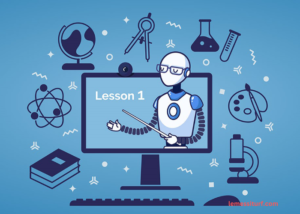Your Guide to Becoming an Elementary School Teacher

Shaping the minds of young learners is an expedition brimming with rewards and challenges. As a beacon to those aspiring to guide the next generation, the journey to becoming an elementary school teacher demands dedication, creativity, and a reservoir of patience. For those with a heart set on educating children, this guide offers a comprehensive map to navigating the terrain of teacher certification. Keep reading to uncover the milestones that pave the way to a fulfilling career in elementary education.
Navigating College Admission Counseling: Steps to Launch Your Teaching Career

Becoming an elementary school teacher begins with carefully selecting higher education institutions that align with one’s career aspirations. Many potential educators turn to college admission counseling to refine their approach and increase their chances of acceptance into premier programs. Services like Empowerly, known for supporting students with a remarkable 98% success rate, aid in navigating the labyrinthine admissions process.
Aspiring educators must understand the prerequisites for teacher education programs to tailor their applications accordingly. Crafting a compelling narrative reflecting a teaching commitment is pivotal in standing out. Professional counselors assist in highlighting applicants’ strengths, ensuring their dedication to shaping young minds shines through in every aspect of their application.
Securing a position in a renowned teacher preparation program demands more than stellar grades; it necessitates strategic planning, from extracurricular involvement to gathering relevant experience in educational settings. Insightful counseling guides the strategic steps required, helping candidates present a well-rounded profile that resonates with the ethos and expectations of top-tier colleges.
Essential Qualifications: What It Takes to Become an Elementary School Teacher
Embarking on an elementary school teacher career begins with a solid educational foundation, often marked by achieving a relevant degree. For many aspiring educators, the UC Online Associate’s in Early Childhood Care & Education is a critical stepping stone towards shaping young minds. Prospective teachers must possess a blend of theoretical knowledge and practical skills, which are cultivated through rigorous coursework and hands-on experience.
Certification requirements vary by state, but universally, a deep understanding of child development and mastery of teaching strategies are necessary. Those pursuing this vocation need excellent communication skills to engage with children, parents, and colleagues effectively.
Aside from formal qualifications, personal attributes are pivotal in a teacher’s effectiveness. The capacity to foster a nurturing class environment is indispensable for ensuring student growth and emotional well-being. Additionally, creativity and patience are invaluable traits for addressing the diverse learning needs within a classroom and cultivating a culture of curiosity and love for learning among students.
Crafting Engaging Lesson Plans: The Art of Pedagogy in Elementary Education
Elementary educators bear the significant responsibility of designing lesson plans that are both educational and captivating. They must weave together the curriculum’s requirements with creative teaching methods that resonate with young learners. The aim is to stimulate curiosity and encourage active participation among diverse students.
Effectiveness in lesson planning demands an in-depth understanding of child development theories and learning styles. Teachers draw on this expertise to create developmentally appropriate activities that cater to each child’s strengths. Their acumen allows them to adjust strategies, ensuring all students remain engaged and challenged.
Successful educators impart knowledge through technology, storytelling, hands-on projects, and collaborative learning. This dynamic approach demands diligence in preparing for each day yet yields rich rewards as students connect meaningfully with the material. The educator’s role transcends mere information delivery, facilitating experiences that ignite a lifelong love of learning.
Cultivating Classroom Management Skills: Strategies for Success in Elementary Teaching
Effective classroom management is the cornerstone of a successful elementary teaching experience. Teachers are tasked with creating an atmosphere conducive to learning, which often entails a finely tuned blend of discipline and compassion. Mastering these strategies enables educators to maintain a classroom environment where respect is mutual, and disruptions are minimized.
Elementary teachers employ a variety of tactics to keep their classrooms orderly and focused. They set clear expectations from the outset and consistently reinforce them through positive reinforcement and fair consequences. This structured approach ensures students understand the behavioral norms and the importance of adhering to them.
Successful elementary educators also recognize the power of building strong relationships with their students. They invest time in understanding each child’s unique background and learning needs. With these insights, teachers tailor their management techniques to support a nurturing environment where every student can thrive academically and socially.
Altogether, the journey to becoming an elementary school teacher demands meticulous planning, dedication, and a commitment to lifelong learning. By embracing the nuances of college admission counseling, essential qualifications, engaging lesson planning, and effective classroom management, aspiring educators can pave a path towards a fulfilling career shaping the minds of future generations.







